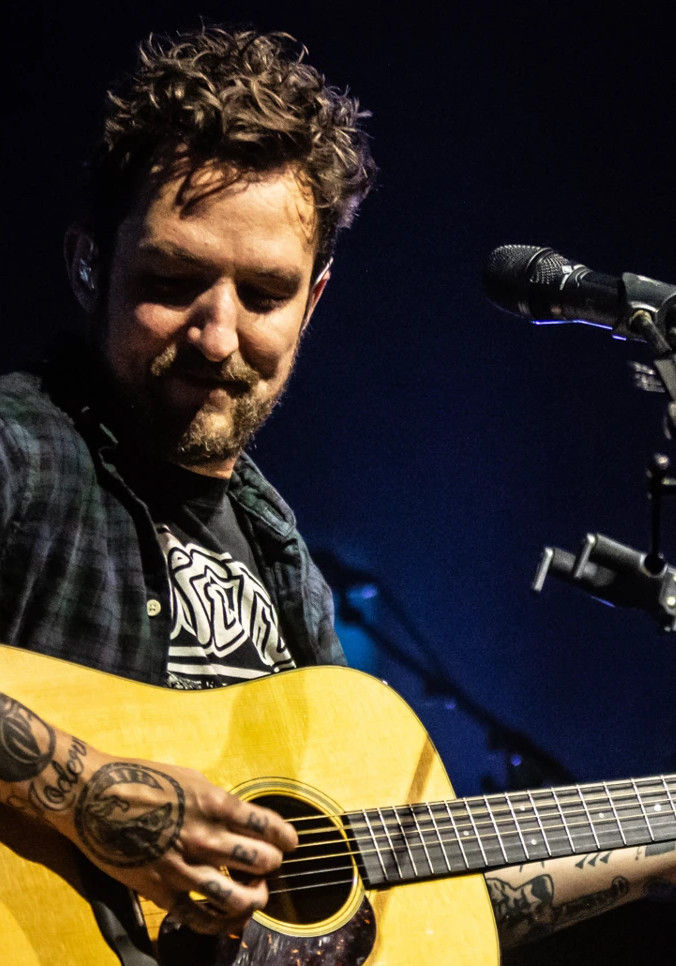Like all touring artists that suddenly found themselves spending the majority of their time at home, Frank Turner realised that he needed to find something new to occupy his time. Turner tells Headliner how he’s been digging into music production from his shed, and shares why Sennheiser has been a game changer for him on stage.
“At the beginning of lockdown, like everybody, I thought, ‘well, it's time to be creative, because there's no distractions, and then after a while, you realise that a global pandemic is quite the distraction in itself,” begins Frank Turner, who catches up with Headliner from his UK home, or possibly his shed.
“I've been through phases of being very creative as a writer. I've been learning to be a producer, an engineer and a mixer during this period of time. But then there's also been times where I've been completely sort of paralysed, so it swings around.”
Turner admits that with so much time spent at home over the last year, he is guilty of what he calls the “curse of the lockdown song”, although he adds that many of these will never see the light of day.
“It’s funny how quickly things date; I was looking back the other day at some lyrics that I wrote in April or May last year, and it sounds like they were written 100 years ago now. I wanted to learn more about the technical side of things because I wanted to use my time productively and learn a new skill. But it was also because I realised quite quickly that structure and routine is quite important to me and to my mental health.”
Contrary to stereotypes and cliches, life on the road is actually pretty structured, shares Turner.
“I wake up in the morning and my tour manager gives me a day sheet that tells me what I'm doing pretty much every minute of the day. I find that useful in terms of getting things done, and at the beginning of lockdown, it felt like the day after you get back from tour when you generally sit around and watch Netflix in your pants, but kind of forever – and you can't live like that forever. I realised pretty early on that what I needed was a project, structure and a routine. So I started putting aside hours of the day to get things done and to try and move forward.”
Turner has been a vocal advocate of We Make Events, an international movement to highlight that the live events sector urgently needs support from local governments to survive the Covid-19 crisis.
In 2020, Turner performed a weekly show from his home on his Facebook and YouTube channels to raise money for independent grassroot music venues that were forced to temporarily close due to the pandemic. Some of his shows were held specifically to raise money for his band, touring crew and his publishing label.
“I've said so many times – when people say things like ‘it doesn't fit in with my album plan’ – stuff your album plan; if you don't have a crew, you don't have an album plan. For me, I'm painfully aware of how much my crew do when given a run of things, and then also how completely stuffed they've been by what's going on right now. If you make your living as a live crew person, it’s just like somebody found the off switch for your life.
"These are people I live with in a dormitory on wheels for 10 months of the year. I sleep half a meter away from my production manager and my guitar tech; there's no hierarchy there – they're my best friends, they're my family. So when We Make Events started coming together, it seemed to be the least I could do to contribute.”





